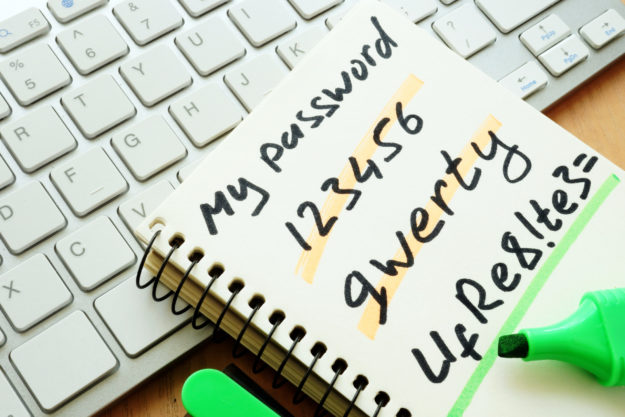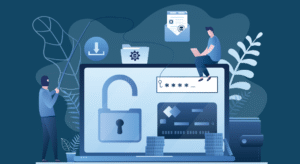In today’s digital environment, passwords are essential for securing your personal information, online accounts, and even your finances. The key to protecting yourself from hackers, identity theft, and unauthorized access is to create strong passwords. Weak passwords like “123456” or “password” can be easily guessed by scammers or cracked using automated methods. Strong passwords, on the other hand, are complex and difficult to crack, but it is usually important not to write them down or use dangerous techniques to remember them. Everyone should learn how to create strong and memorable passwords to ensure online security.
Understanding Password Strength
A strong password is a random, long, and complex password. It should contain at least 12 characters and include uppercase and lowercase letters, numbers, and special symbols. The variety of characters makes it harder for hackers to brute force it. Avoid using common phrases, names, or repeated patterns, such as “abcd” or “1111.” Many people choose simple but less secure passwords because passwords with random combinations of letters and numbers, while stronger, are usually harder to remember. People seek a balance between memorability and strength.
Use Passphrases Instead of Passwords
Passphrases are a great way to create strong passwords that are easier to remember. A passphrase is a long password made up of a number of random words or random phrases. For example, “BlueTigerCoffeeWindow” is longer and easier to remember than “Xy7!p9$Qz,” but it is still very secure. Because passphrases are based on words you can imagine or associate with, they are easier to remember. Adding numbers or symbols at the end or in the middle can increase security without making the passphrase too complex.
Customize your Password
While you should avoid easily guessed information such as your name, date of birth, or the name of your pet, you can still personalize your password in a unique way. Think of a special memory, a favorite place, or an important phrase, and use fragments of it to create a password. For example, you can combine numbers or symbols with the first letters of a favorite phrase, such as a line from a book or a piece of music. This will help you create passwords that are easy to remember, personally meaningful, and strong.
Use Mnemonics to Help you Remember
A mnemonic is a memory aid that associates something difficult to remember with something familiar so that you can remember it. You can remember strong passwords by converting your password or passphrase into easy-to-remember words or phrases. For example, if your password is “Mt$5rC!”, you can remember it by thinking, “My two $5 red cats!” This simple trick helps your brain associate random characters with a vivid image or story while maintaining the complexity of the password, making it easier to remember.
Avoid Common Mistakes When Creating Passwords
Many users use simple or repeated passwords for multiple accounts. This approach is dangerous because if one account is compromised, hackers can potentially gain access to other accounts with the same password. Avoid using personal information gathered from public records or social media pages. Another common mistake is relying too much on default passwords from devices or websites, which are often weak and known to hackers. Good online security relies primarily on changing passwords regularly and avoiding explicit passwords.
Password Managers: Safe and Convenient
Password managers are software solutions designed to securely store and organize passwords. They create secure, random passwords for each of your accounts that you can keep, so you don’t have to remember them all. This allows you to use complex passwords without worrying about forgetting them. Many password managers also offer password breach notifications, autofill, and password strength check features. Using a reliable password manager can make you feel more secure in your digital life and reduce the tendency to reuse passwords.
Testing Your Password Strength
Before choosing a password, it’s a good idea to test its strength using trusted online tools. These tools compare your password to common attack techniques and give you a rating of its strength or weakness. Sometimes they ask you to make changes, such as adding extra characters or combining multiple symbols. Only use tools from trusted security companies; avoid online password checkers that store or save your password. Testing your passwords can help improve behavior and give you insight into the factors that contribute to the strength of your password.
Two-factor Authentication (2FA)
Two-factor authentication adds an extra layer of protection, since even the strongest passwords can occasionally be stolen. 2FA requires not only your password but also a second form of verification: a code generated by an app or emailed to your phone. This means that without the second factor, even someone who finds your password can’t access your account. Combine 2FA with a strong password, and your online security will improve significantly.
Changing your Passwords Regularly
A password shouldn’t be set and forgotten. Data breaches or other security incidents can eventually make even strong passwords vulnerable. It’s a good idea to make a habit of changing your passwords regularly, especially for critical services like social networks, banking, or email. Regular updates can reduce the risk of unauthorized access and help prevent long-term exposure. When changing your password, avoid making small changes like replacing “Password 1” with “Password 2.” Instead, use the tips in this article to choose a new strong password.
Conclusion
Creating strong passwords that you can actually remember isn’t as difficult as it seems. You can improve security and memory by understanding what makes a strong password, using passphrases, carefully formulating passwords, and using memory aids like mnemonics. Avoid common mistakes and use two-factor authentication and password managers to further improve security. Regularly testing and changing passwords can help protect you from online risks. These simple but effective methods will help you protect your digital life and give you peace of mind.
FAQs
1. Can my password contain personal information?
Names and dates of birth are easily guessed personal information and should be avoided, as hackers can potentially obtain this information online.
2. How effective are password managers?
Password managers can create strong and unique passwords for each account, so you don’t have to remember them all. They also store your passwords securely.
3. Is two-factor authentication essential if your password is strong?
Two-factor authentication provides extra protection by requiring a second verification, significantly reducing the chance of unauthorized access.
4. How often should I change my password?
Regularly updating your password is a healthy habit, especially for sensitive accounts or if you suspect a security breach.
5. Is it safe to check the strength of your password online?
Never enter your real password on an unsecured website; only use password-checking tools from trusted security firms.




